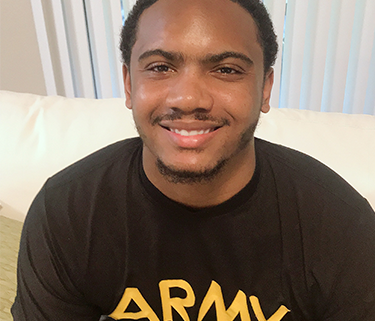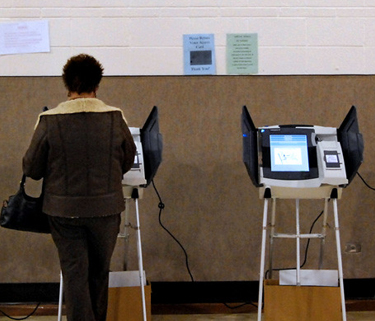After more than a decade of unjust prosecution and abuse in the criminal justice system, Neli Latson, a Black man with multiple disabilities, is finally a free man. Virginia Governor Ralph Northam granted Mr. Latson, 29, a full pardon late Monday.

Mr. Latson, who has autism and intellectual disability, now has the chance to live a satisfying and self-directed life in the community, free from burdensome, unfair restrictions and the constant threat of reincarceration, but unfortunately never free from the painful truth that Black people with disabilities live at a dangerous intersection of racial injustice and disability discrimination. Mr. Latson’s case, which began in 2010, galvanized disability rights activists, bringing national attention to overly aggressive and sometimes deadly policing, prosecution and sentencing practices and the horrifying mistreatment of people with disabilities in jails and prisons.
The Arc has been seeking justice for Mr. Latson for more than a decade. A coalition of nearly 50 advocacy groups and legislators sent a letter to Governor Northam in July 2020 calling for him to grant Mr. Latson a full pardon. With tremendous relief, we thank Governor Northam for issuing the well-deserved full pardon. And on today’s 22nd anniversary of the Supreme Court’s landmark Olmstead decision, we are even more deeply reminded that people with disabilities are members of the community – not to be shut away and restricted because of their disability.
In 2010, Mr. Latson was an 18-year-old special education student, waiting outside his neighborhood library in Stafford County, Virginia for it to open. Someone called the police reporting a “suspicious” Black male, possibly with a gun. Mr. Latson had committed no crime and was not armed. The resulting confrontation with a deputy resulted in injury to an officer when Mr. Latson understandably resisted being manhandled and physically restrained. This was the beginning of years of horrific abuse in the criminal justice system. Prosecutors refused to consider Mr. Latson’s disabilities, calling it a diagnosis of convenience and using “the R-word,” and rejected an offer of disability services as an alternative to incarceration. Instead, Mr. Latson was convicted, sentenced to ten years in prison and punished with long periods of solitary confinement, Taser shocks, and the use of a full-body restraint chair for hours on end for behaviors related to his disabilities.
Virginia and national disability advocates, including The Arc and Autistic Self Advocacy Network, urged then-Virginia Governor Terry McAuliffe to pardon Mr. Latson. In 2015, with bipartisan support from state legislators, Governor McAuliffe granted a conditional pardon. Although this released Mr. Latson from prison, it required him to live in a restrictive residential setting and remain subject to criminal justice system supervision for ten years. The terms of the 2015 conditional pardon meant Mr. Latson could be sent back to jail at any time, causing constant anxiety. Today’s pardon from Governor Northam recognizes Mr. Latson’s success since 2015 and relieves him from that ongoing threat.
“Neli Latson has spent almost his entire adult life entangled in a legal system that criminalized his disability and race. We believe Governor Northam’s full pardon will end this painful chapter of Mr. Latson’s life so that he can move forward. However, it is important to acknowledge that this blatant injustice has caused devastating harm to Mr. Latson and his family. The Arc will always fight for the rights of people with intellectual and developmental disabilities in the criminal justice system and against the systemic racism that deepens the indignity. This moment proves that advocacy matters,” said Peter Berns, Chief Executive Officer of The Arc of the United States.
“Justice should never have been delayed for Neli,” said Tonya Milling, Executive Director of The Arc of Virginia. “Yet we are thrilled that his decade-long struggle has finally come to a conclusion, and he will now be able to move forward with all the numerous opportunities that he should have been able to experience all along.
“Archaic and biased systems continue to exist all around us – particularly for BIPOC and other marginalized individuals with intellectual and developmental disabilities. For many years, The Arc of Virginia has worked both independently and with a broader coalition of advocates, towards desperately-needed reforms in how intellectual and developmental disabilities are viewed and treated in the criminal justice system. In the years since Neli’s unjust conviction, we have seen steps of progress in legislative policy. One example is legislation recently signed into law, that specifies in Code that intellectual and developmental disabilities may be considered at various junctures and touch points of the court system – ensuring that all defendants can be provided every opportunity for fairness and justice throughout the process.
“It is impossible to undo all the harm that was caused to Neli, but Virginia can and must continue working to prevent future harm from being inflicted on individuals with intellectual and developmental disabilities and their families. The Arc is wholly committed to continuing our partnership with advocates and legislators, on measures that will ensure justice for all,” said Milling.
“We’re excited that after years of advocacy, Neli Latson will soon be free to engage with the community on his own terms. We recognize that the restrictions he was forced to follow – including isolation in institutional settings – functioned as a form of continued incarceration even after his release from prison. We’re very grateful to the many community members who fought for Neli by writing letters, making calls, and continuing their advocacy even after the initial pardon was issued,” said Sam Crane, Legal Director of Autistic Self Advocacy Network.
For more information, contact:
Kristin Wright, The Arc of the United States, wright@thearcwebdev.wpengine.com or 202.617.3271
Tonya Milling, The Arc of Virginia, tmilling@thearcofva.org or 804-649-8481 x.101
Sam Crane, Autistic Self Advocacy Network, scrane@autisticadvocacy.org
















